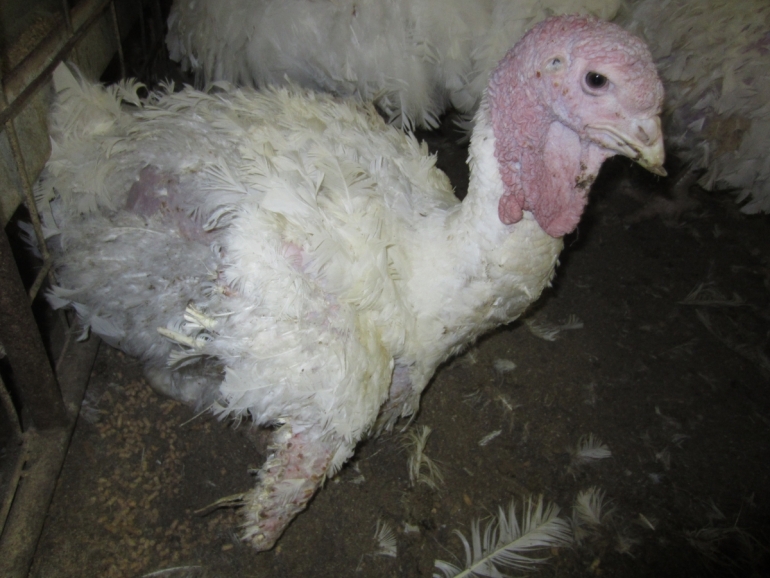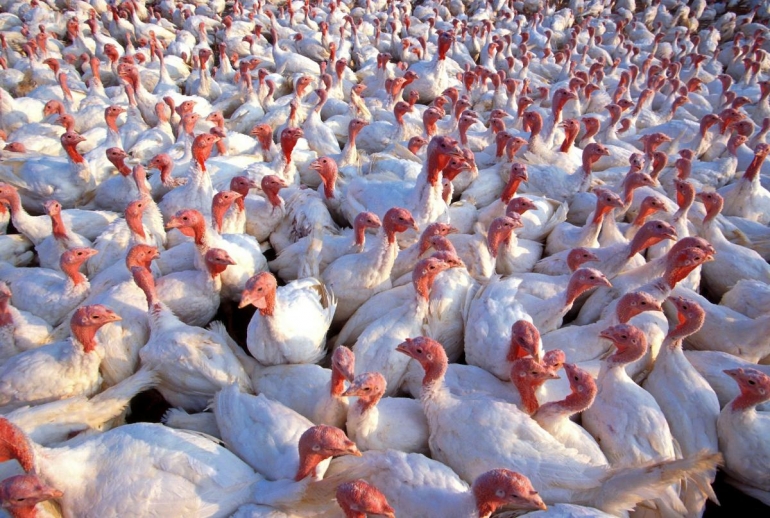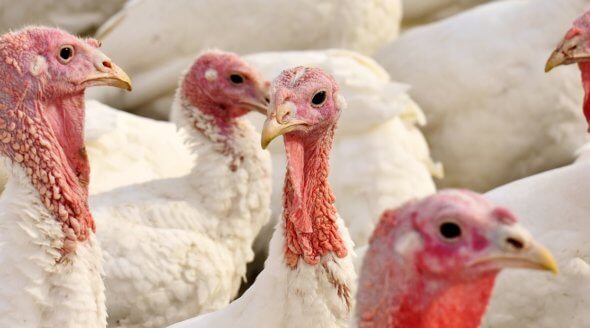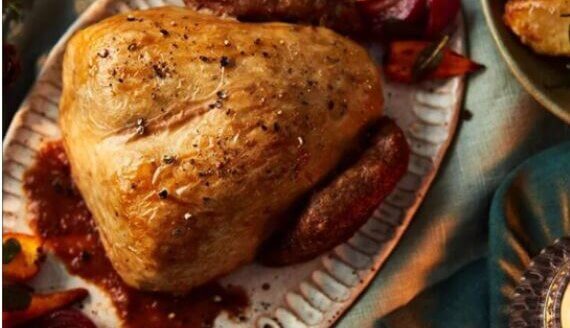If You Wouldn’t Eat Your Cat, Why Eat a Turkey? New PETA Ad Challenges Speciesism
If you wouldn’t eat your cat for Christmas dinner, why would you eat a turkey? PETA’s new billboards are serving up food for thought in York, the UK’s “most festive city”.
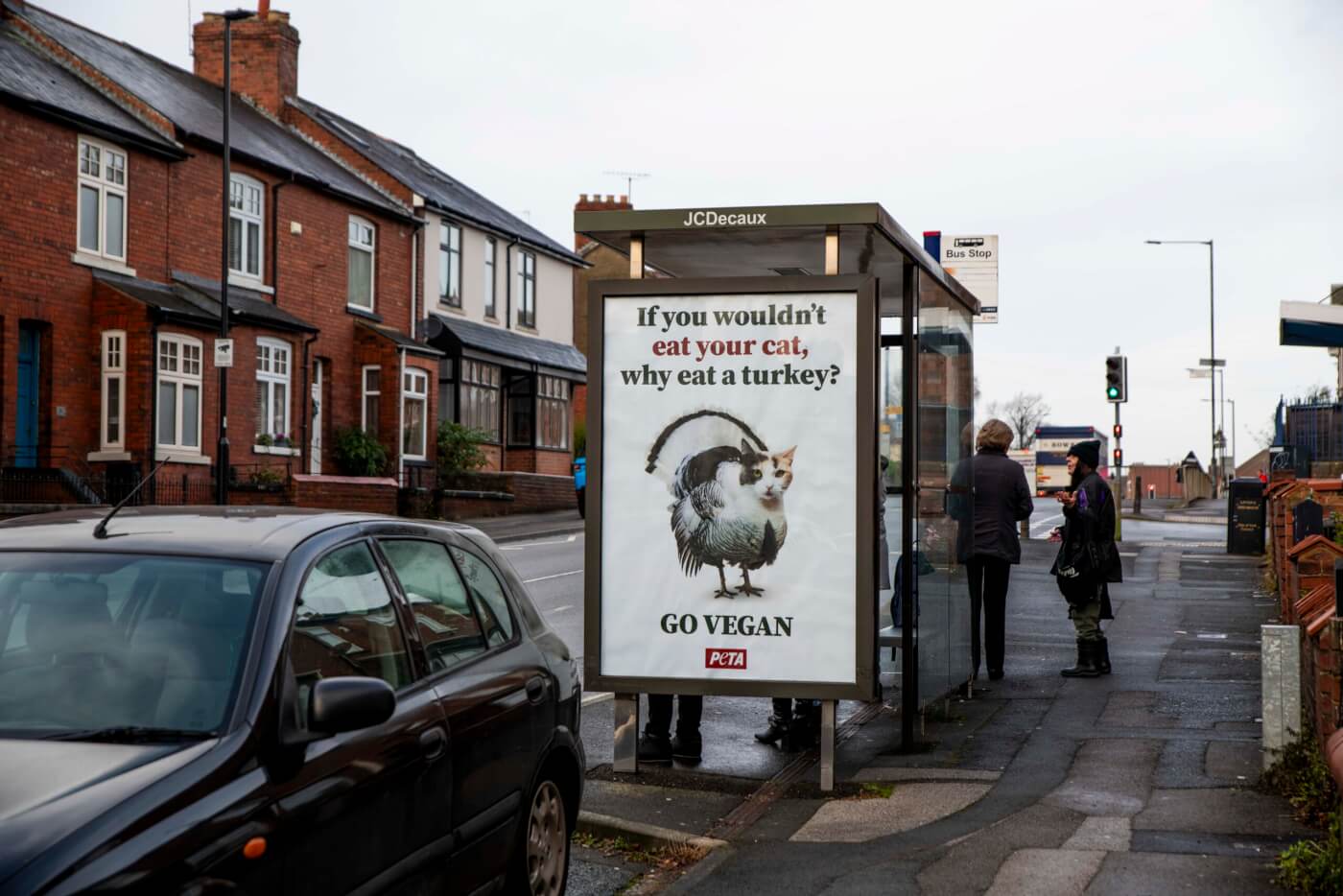 Atken Photography
Atken Photography
The ads are located near York’s famous Christmas market and elsewhere across the city. We are urging locals to consider why they share their homes with some animals while others end up on their plates.
Turkeys and Tabbies Are Not That Different
Cats and turkeys are the same in all the ways that matter – from feeling joy and pain to bonding with their loved ones. It’s speciesist to eat the flesh of a turkey while cuddling a companion cat. Turkeys are smart, social birds, who don’t want to be trussed and stuffed any more than you or I do.
In nature, turkeys spend their days caring for their young, building nests, foraging for food, taking dust baths, and roosting high in trees. Free-roaming turkeys can live for up to 10 years, but those raised for food are normally slaughtered when they’re between 12 and 26 weeks old.
In the UK, approximately 9 million turkeys are killed each year for Christmas. Workers hang the young birds upside down, drag them through an electrified bath, slit their throats, and dump them into defeathering tanks full of scalding-hot water – often while they’re still conscious.
Have a Very Vegan Christmas
Embody the spirit of kindness by enjoying a vegan Christmas meal! In addition to sparing the lives of nearly 200 animals a year, everyone who goes vegan slashes their carbon footprint and reduces their risk of suffering from heart disease, diabetes, and cancer.
Our guides are here to help you spread compassion this festive season:

